License to kill: UK ramps up arms sales to Israel despite growing outcry
By Reza Javadi
A notable development last week further established the British government’s complicity in the Israeli genocidal war on Gaza as the UK high court dismissed a case calling for an immediate halt to British arms exports to Israel despite the massive outcry.
Although the UK arms export criteria prohibit licensing if there is a "clear risk" of a weapon being used in serious violations of international humanitarian law (IHL), the court overlooked these standards by rejecting the legal challenge mounted by the Palestinian human rights organization Al-Haq and the UK-based Global Legal Action Network (Glan) in December.
Shawan Jabarin, Al-Haq's general director, understandably slammed the legal verdict.
“The government’s decision to continue supplying Israel with weapons to continue its military aggression against men, women and children in Gaza is effectively arming Israel to completely decimate the Gaza Strip, reducing Gaza’s vital civilian infrastructure to rubble.”
In their effort to challenge the court's decision, these organizations sought a judicial review of the Rishi Sunak government's export licenses for the sale of British armaments, which are being utilized in Israel’s Gaza genocide daily.
The legal challenge shed light on the government's license for the sale of British arms to the Israeli regime across various categories, including components for military radars, targeting equipment, combat aircraft, and naval vessels.
Campaign Against the Arms Trade (CAAT) research reveals that since 2015, the UK has licensed approximately £472 million in "standard" arms exports to the Israeli regime, along with 58 unlimited value "open" licenses, lacking transparency and permitting unlimited quantities.
The UK High Court’s dismissal comes on the heels of the International Court of Justice's (ICJ) recent order for Israel to take measures to stop its genocidal war against Palestinians in Gaza.
The ICJ's interim ruling on South Africa's genocide case against Israel stated that the regime is "plausibly" committing genocide in Gaza, triggering global pressure on governments across the world to halt their arms sales and military aid to Tel Aviv.
Siobhán Allen, a Glan lawyer, said the court’s decision that it is not arguable that the government got its risk assessment wrong is difficult to reconcile with the ICJ interim ruling.
"We will be asking for a hearing to review this decision and are confident that the court will see it differently and Al Haq’s claim can proceed,” Allen was quoted as saying.
According to multiple reports, the British government has ramped up arms exports to the Israeli regime in recent months to meet the growing demand amid the genocidal war on Gaza.
Sunak government is following in the footsteps of Washington, which has pledged 14.3 billion of military assistance to the Israeli regime, ignoring calls to end the arms exports.
Growing concern over UK's arm aids to Israel
Concerns have been raised by British parliamentarians and human rights groups regarding the UK's arms sale to Israel amid the ongoing genocide in Gaza, which just completed five months.
More than 30,800 Palestinian civilians have been killed since October 7, including over 14,000 children and nearly 9,000 women. The civilian infrastructure also lies in complete ruins.
Some Members of the British parliament have expressed worry over the violation of international humanitarian law through their government’s arms exports to the regime.
The Scottish National Party (SNP) has urged the Sunak government to put an immediate end to export licenses to the Benjamin Netanyahu regime and refrain from granting new ones.
Human rights groups in the UK have specifically called on the Sunak government to halt arms transfers to Israel, citing concerns about potential "war crimes" against Palestinians.
In December, a letter from a consortium of rights groups highlighted the UK's contribution of approximately 15 percent of components in the F-35 stealth bomber aircraft used in Gaza.
“The UK provides approximately 15 percent of the components in the F-35 stealth bomber aircraft currently being used in Gaza, including the rear fuselage and active interceptor system, ejector seats, aircraft tires, refueling probe, laser-targeting system, and the fan propulsion system,” the letter read, adding that UK-supplied components had been utilized by the Israeli regime in previous wars, notably during the 2008-09 Gaza War.
Citing a 2014 review by former UK Prime Minister David Cameron, the letter noted the commitment to suspend existing licenses for equipment and parts used by the Israeli military "if significant hostilities resumed in Gaza."
It also referenced international and UK laws, including Articles 6 and 7 of the International Arms Trade Treaty, as well as the UK’s Strategic Export Licensing Criteria, requiring the government to halt arms transfers if a substantial risk of serious violations of international humanitarian law or human rights legislation exists.
The letter documented "unlawful" attacks by Israeli forces on various civilian targets since October 7, including medical facilities, residential buildings, evacuation convoys, bakeries, water and electricity infrastructure, schools, and UN facilities sheltering displaced Palestinians.
The letter asserted that intentional or reckless attacks against the civilian population and objects constitute "war crimes".
“The Israeli military has also used white phosphorus munitions in Gaza, a densely populated area, which puts civilians at unnecessary risk and is unlawful,” it noted with concern.
‘UK government’s words do not match its actions’
The UK government's claims of not providing lethal or military equipment to Israel since the start of the regime's war on Gaza are contradicted by a January affidavit filed at the UK High Court.
The Department for Business and Trade identified 28 current licenses and 28 pending applications for exporting equipment "most likely to be used by the [Israeli occupation forces] in offensive operations in Gaza".
Eight rights groups, including the Campaign Against the Arms Trade and War on Want, pointed to a discrepancy between the government's public stance and the court document, urging clarification on how it ensures weapons licensed for export have not reached Tel Aviv since October 7.
The rights groups highlighted concerns about transparency and the British government's clear disregard for mounting evidence of serious violations.
"The government's publicly-stated position on weapon licenses to Israel is difficult to reconcile with what the government had admitted in litigation," the groups said in a letter sent to the government on Wednesday.
“War on Want & other UK orgs are deeply concerned by the UK government's refusal to halt arms transfers to Israel - despite the clear risk that these arms are being used by Israel in its plausible genocide of the Palestinian people,” the UK-based War on Want charity and human rights group tweeted last week, attaching their joint letter.
“Israel is deepening the humanitarian crisis caused by its siege of the Gaza Strip, by targeting bakeries, water pipes and electricity networks — a form of collective punishment of the Palestinian people, prohibited under international law. UN human rights experts have warned that Palestinians are at risk of genocide,” the group wrote on its official website.
The UK government, obligated to suspend licenses for arms exports under certain conditions, insists it can revoke, suspend, or amend licenses if inconsistent with criteria. However, the rights groups say it is "flagrantly ignoring the mounting evidence of serious violations".
Which countries banned arms exports to Israel?
The recent UK high court ruling follows a Dutch court's decision to ban sales of F-35 parts to Israel, acknowledging a "clear risk" of their use in humanitarian law violations.
Dutch humanitarian organizations Oxfam Novib, PAX Netherlands Peace Movement Foundation, and The Rights Forum filed the lawsuit against the government, echoing concerns raised in the ICJ regarding South Africa's apartheid case against the Israeli regime.
“It is undeniable that there is a clear risk the exported F-35 parts are used in serious violations of international humanitarian law,” the court ruling stated.
Meanwhile, Italy and Spain's foreign ministers declared this month that their countries ceased arms exports to the Israeli regime in the wake of the Israeli war on Gaza.
Responding to calls from Democratic Party leader Elly Schlein, Italy's Foreign Minister Antonio Tajani announced the suspension of all weapon shipments to Israel since the outbreak of the regime's genocidal war on Gaza in early October.
Spain's foreign minister also confirmed no arms sales to Israel since early October, imposing an embargo on weapon sales.
However, a report revealed Spain exported ammunition worth $1.1 million to Israel in November, saying the material was being for tests or demonstrations and corresponded to licenses granted before October 7.
In Belgium, a regional government suspended two licenses for gunpowder export to the Israeli regime on February 6, citing the ICJ's interim ruling that suggested Israel may be "plausibly" committing genocide in Gaza.
Furthermore, Japanese company Itochu Corporation announced the end of its partnership with Israeli weapons manufacturer Elbit Systems in February.
CFO Tsuyoshi Hachimura mentioned considerations of the ICJ's order and Japanese government support for the UN court, leading to the suspension of new activities related to the memorandum of understanding and its planned termination by February's end.
“Taking into consideration the International Court of Justice’s order on January 26, and that the Japanese government supports the role of the court, we have already suspended new activities related to the MOU, and plan to end the MOU by the end of February,” Hachimura said.
As War on Want writes in its statement: “There is a clear risk that UK arms are being used to carry out serious violations of international law. The UK government must immediately end the UK arms trade with Israel and ensure it is not complicit in war crimes.”
Reza Javadi has a PhD in British Studies from the University of Tehran.
Iran’s three-man team captures triple gold at UWW ranking series in Tirana
Iranian academic sentenced to 4 years in prison in France for supporting Palestine
VIDEO | Press TV's news headlines
Russia: West seeks to repeat past ‘plunder’ of Iran’s oil
Herzog visits Ethiopia to expand Israeli footprint in Africa
VIDEO | Sunni family's legacy of sacrifice inspires unity, solidarity in Iran
VIDEO | Israeli restrictions force World Central Kitchen to halt Gaza meals
Exclusive: China voices support for Iran’s stability amid US threats


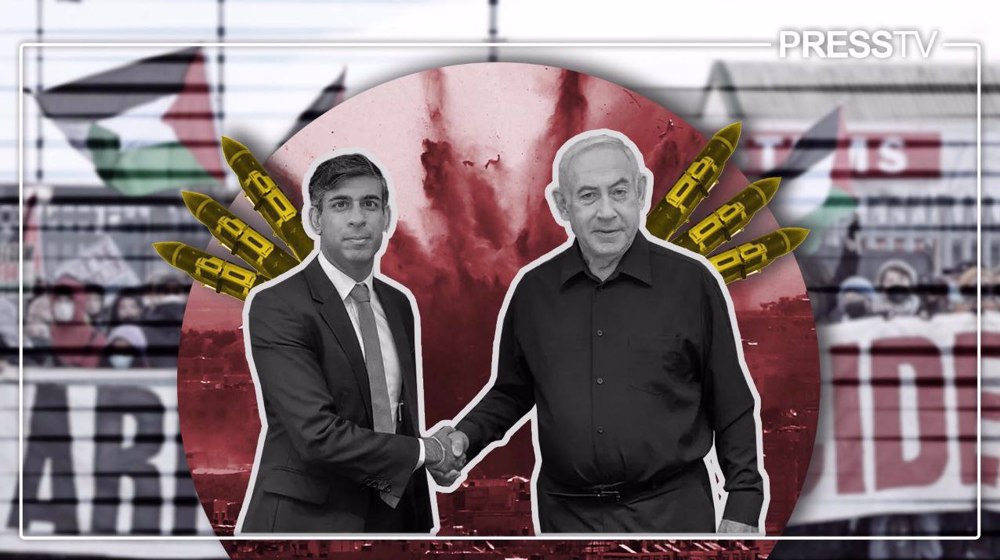
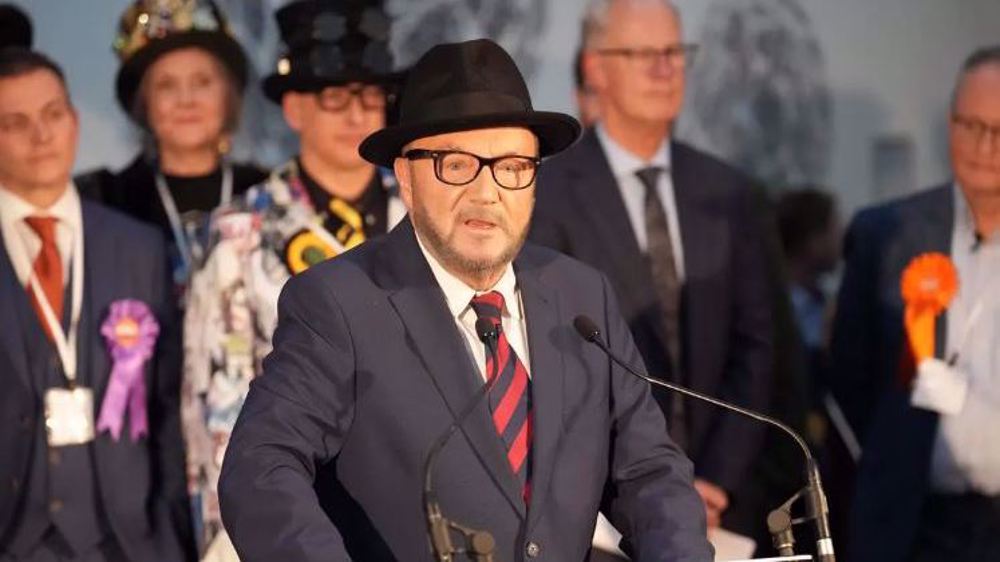
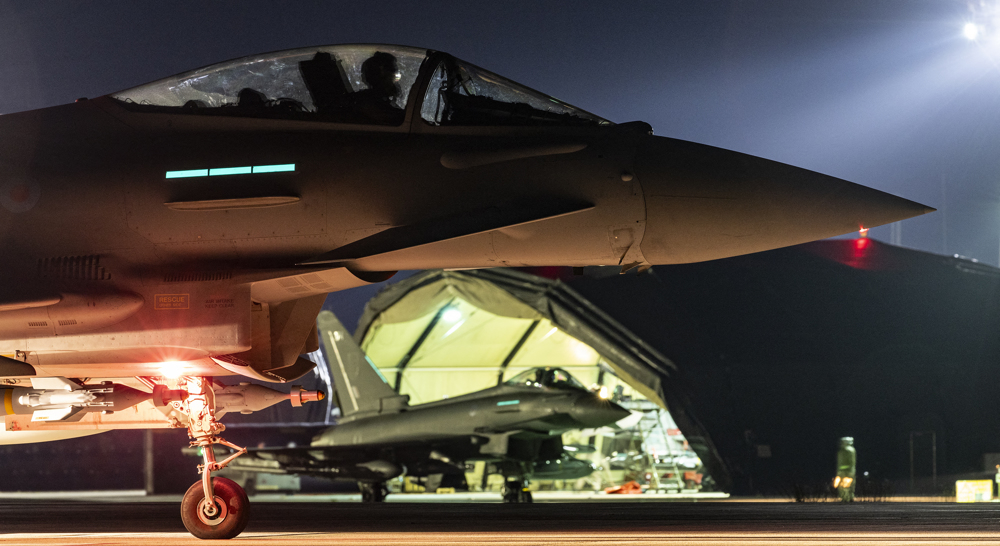
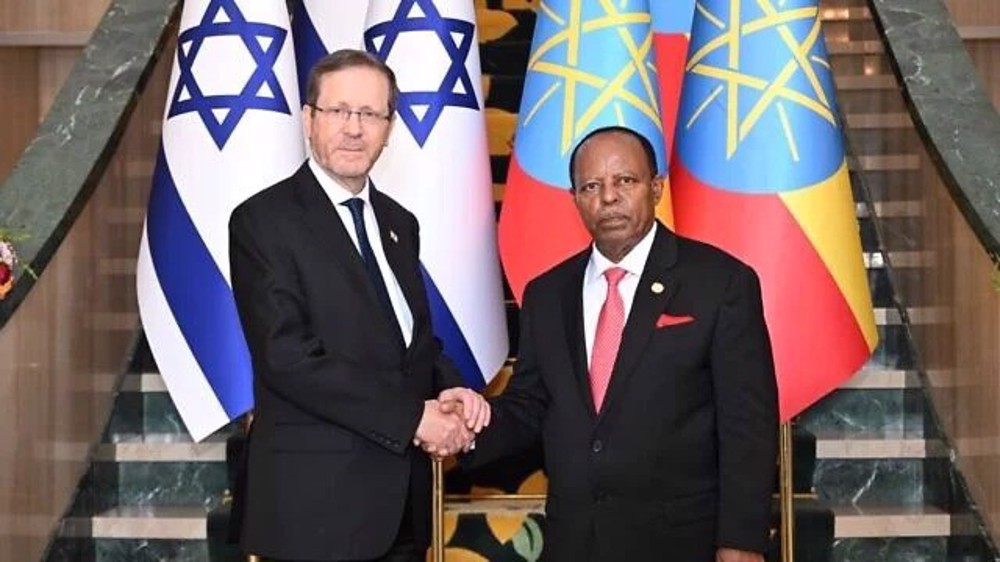
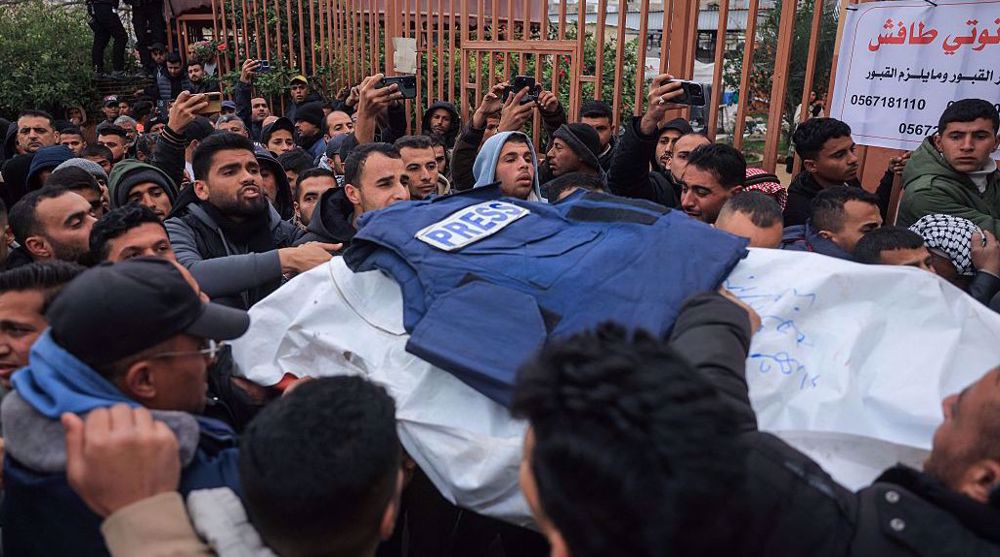
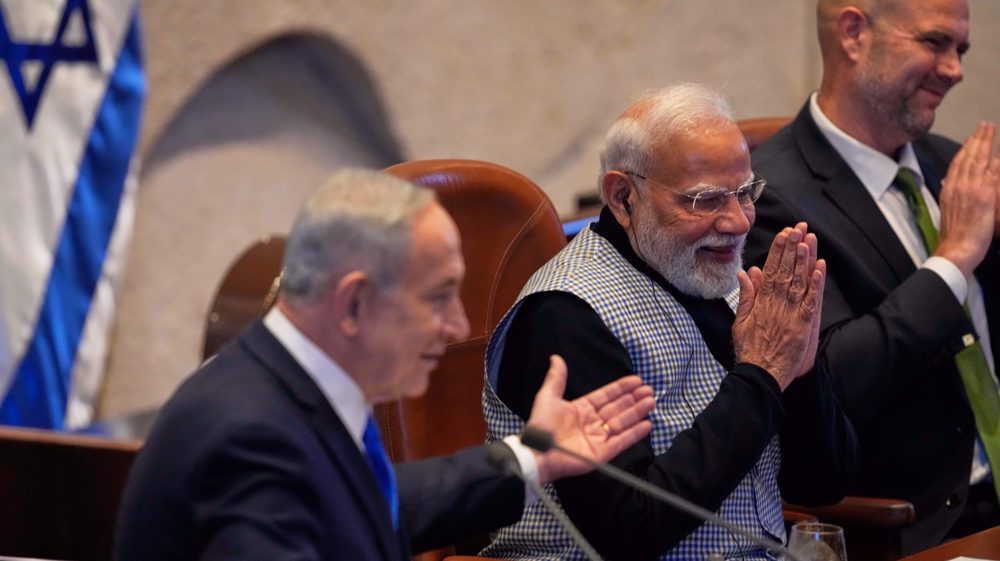



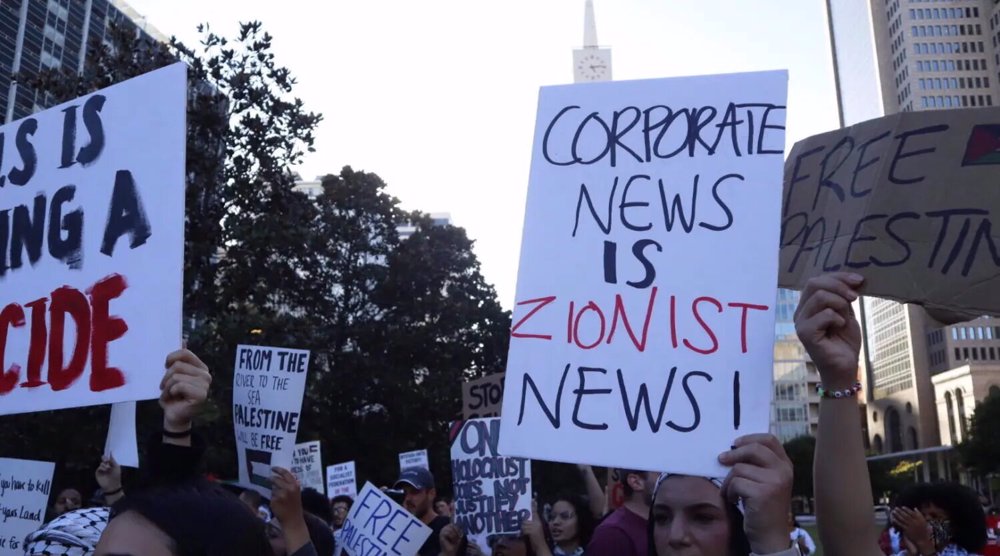
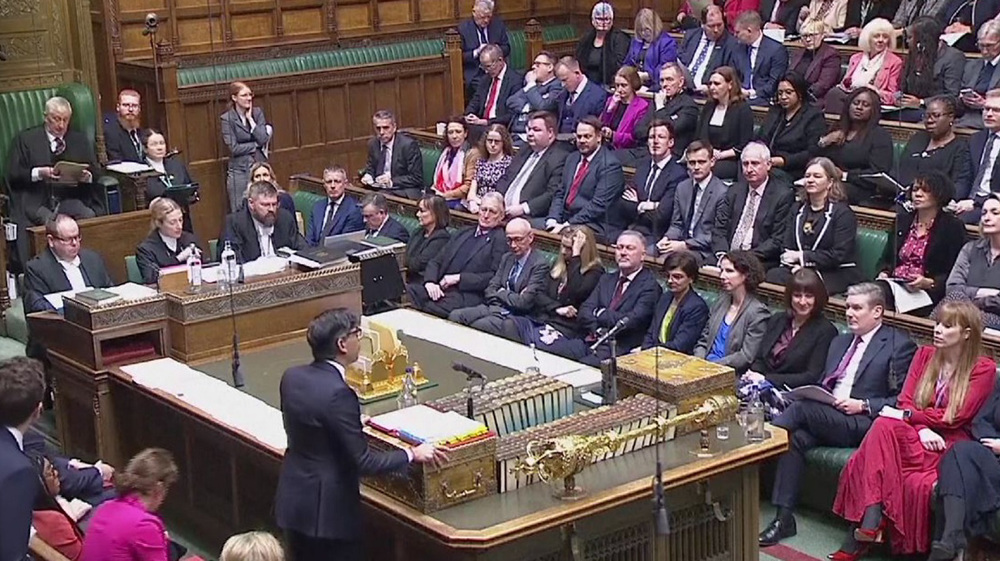


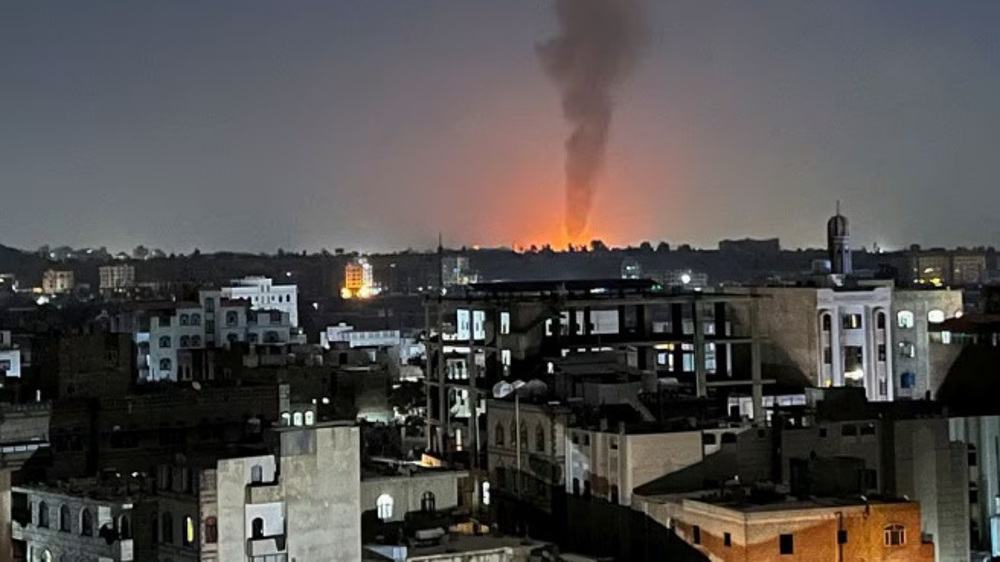

 This makes it easy to access the Press TV website
This makes it easy to access the Press TV website